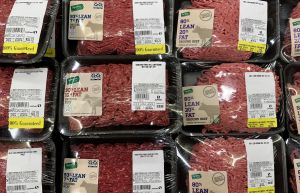
The latest wave of tariffs imposed by the Trump administration took effect this week, raising taxes on imports from more than 60 countries and sending prices higher for everyday American consumers. While the White House frames these measures as a bold move to protect U.S. industries and jobs, economists warn that the costs will be borne largely by households, fueling inflation and straining budgets.
According to AP News, the United States now levies tariffs ranging from 10% to 50% on key imports from major trading partners, including Canada (35%), Brazil (50%), South Korea (15%), India (25%), and the UK (10%). Overall, the average tariff rate stands at 18.6%, the highest since 1933, per Reuters.
Economic models from Yale's Budget Lab project that the average U.S. household will face approximately $2,400 in increased annual costs as tariffs drive up prices on consumer goods such as electronics, clothing, and auto parts, an AP report says.
A recent survey by the Federal Reserve Bank of New York, reported by Fox Business, reveals that nearly 75% of businesses affected by the tariffs are passing increased costs to consumers. This immediate price inflation impacts household budgets, especially among lower and middle-income Americans.
While economists express concern about inflation and consumer strain, political analysts observe that the tariffs may be intended more as a messaging tool than an economic fix.
Support for tariffs has increased among Republican voters. A recent CNN/ORC poll cited by The Guardian shows 62% of Republicans favor tariffs, even if they cause higher prices. Among independents, support rises when tariffs are described as retaliation against unfair trade practices.
Analysis from JPMorgan's geopolitical risk team warns that these tariffs may persist beyond the Trump administration, highlighting the rise of protectionist policies as a longer-term trend, reported Reuters.
International partners including Canada, the European Union, and Switzerland have protested the tariffs, describing them as excessive and harmful to global trade.
Reuters reports Switzerland has requested urgent consultations with U.S. trade officials. The EU is considering retaliatory tariffs on American agricultural exports, while the World Trade Organization braces for formal complaints.
Despite tensions, U.S. stock markets showed resilience. The Dow Jones Industrial Average rose 0.8% Thursday, buoyed by exemptions granted to companies investing in U.S. semiconductor manufacturing.
Semiconductor firms such as TSMC and Samsung saw their stock prices climb following tariff exemptions, according to Business Insider.
Congressional leaders from both parties are considering legislation to introduce transparency and sunset provisions for future tariffs, aiming to mitigate unintended consequences for consumers.
However, with inflation slowing in other areas and voter support holding steady, the political momentum behind tariffs appears likely to continue through the 2026 election cycle.
The administration's tariff strategy is already raising prices for U.S. consumers, but the political calculus behind the policy could outweigh short-term economic pain. As tariffs become entrenched, households, businesses, and global partners brace for ongoing adjustment.
Originally published on IBTimes
© Copyright IBTimes 2024. All rights reserved.








